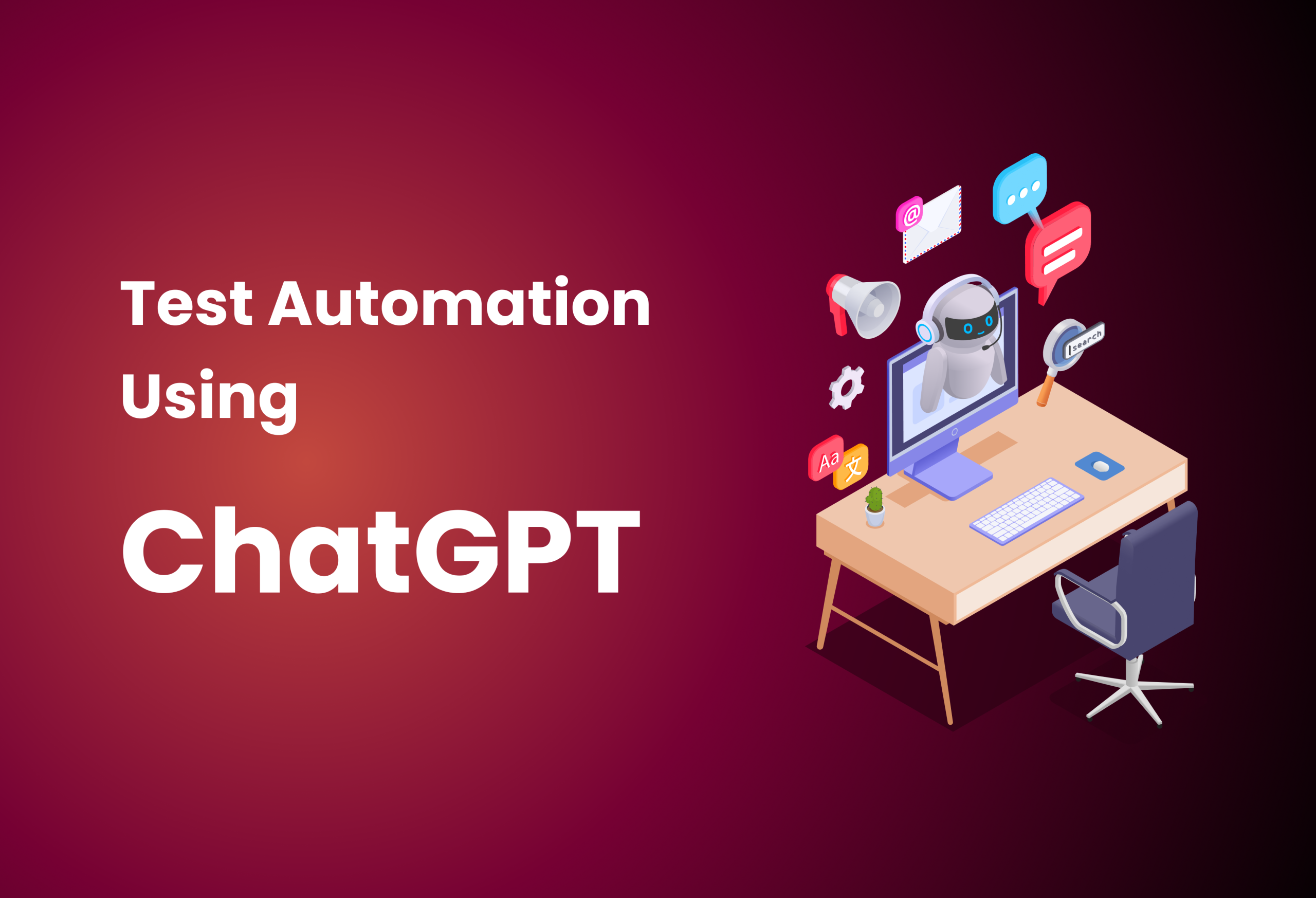ChatGPT, a conversational AI, is taking over right now. This platform is capable of answering your questions using natural language, writing code, crafting social media posts, writing long essays, and doing a variety of other amazing things. As you can imagine, ChatGPT broke all internet records by reaching a million users in just a few days of its launch.
This tool is an incredible invention that millions of users rely on to make their lives easier. Aren’t you curious to know how this incredible AI-powered platform assists mobile and web app testers? Also, how can ChatGPT assist with automated testing? And will it be able to replace test teams? Scroll through to find answers to all those questions and more.
Introducing ChatGPT: What is it?
Before anything, we need a proper introduction to ChatGPt. Basically, ChatGPT is a large language model created by OpenAI. It’s a part of the Generative Pre-trained Transformer (GPT) family of models, specifically the GPT-3.5 architecture, which is designed to generate human-like text based on a given prompt or input.
What is the purpose of ChatGPT?
ChatGPT mainly focuses on engaging in conversations with users. It can answer your questions and provide the information you need. ChatGPT is a know-it-all by all standards. The platform is fed a massive amount of text from the internet. So whatever topic you choose, this tool is able to provide you with informative responses.
ChatGPT and automated testing
As we mentioned, ChatGPT is an AI language model. So it’s not very involved in automated testing or software development. But since ChatGPT is a language software that interacts with humans, it can be used to produce test cases and test data for automated testing systems.
Other than that, ChatGPT can provide useful insight on testing best practices and techniques. Plus, it can help with documentation and communication within testing teams.
You can use ChatGPT to automate processes like integration, regression, and performance testing as well. ChatGPT, for example, validates a web application’s functionality by simulating user interactions and ensuring that the programme responds appropriately to various inputs.
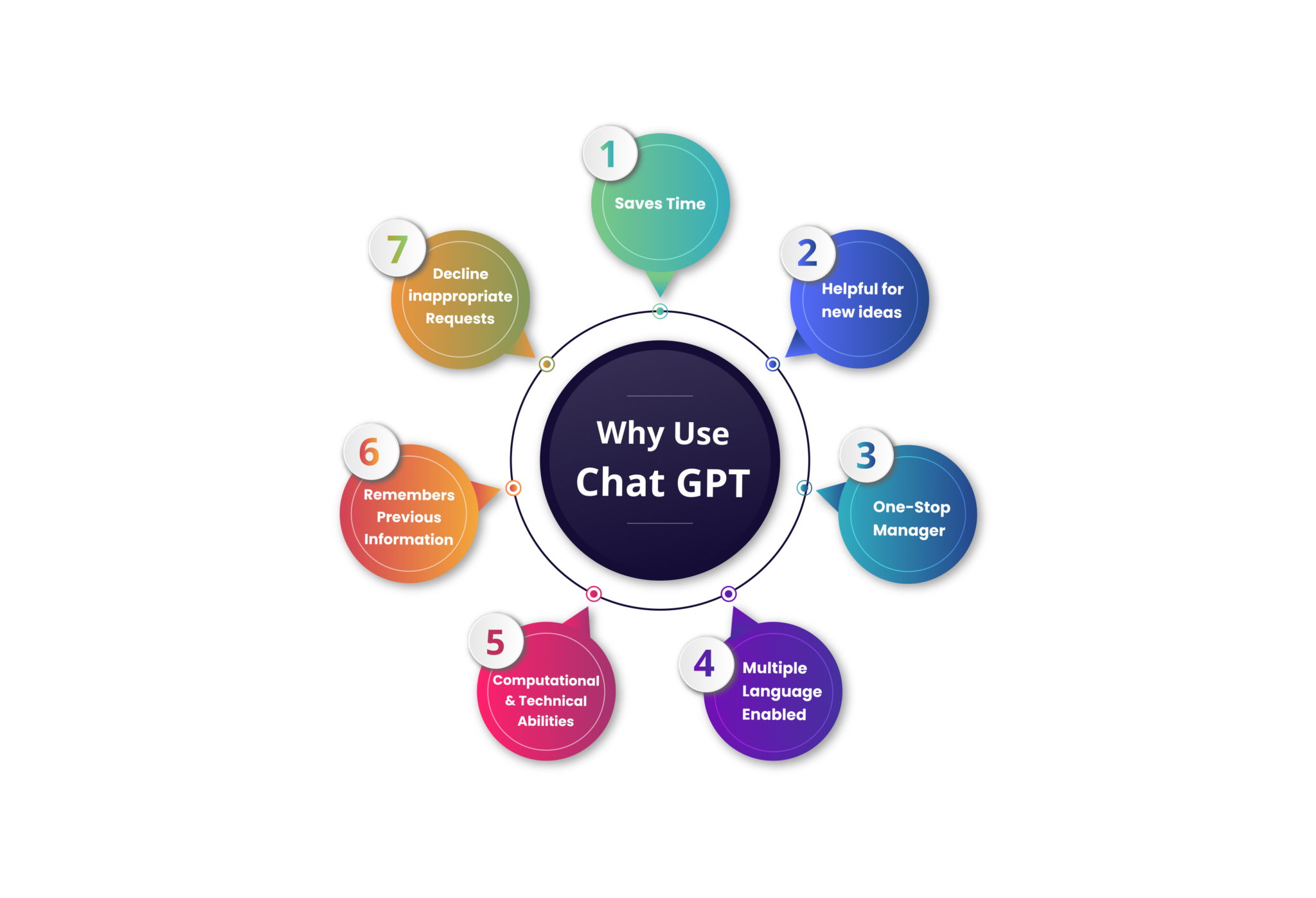
Currently, offering codes that look accurate is what ChatGPT can do. However, there’s a lot more you can expect from it in the near future. Soon enough, ChatGPT will be able to provide the tests to generate, share all the information about the website version, and produce perfect executable code that doesn’t require any modifications.
Currently, you can make the best use of ChatGPT in a low-coding way. Maybe in the future, it will develop into a replacement for testing specialists.
Can ChatGPT produce code for automated testing?
ChatGPT has the potential to generate code for a wide range of projects. Let’s say you’re a software developer who has just completed developing a brand new feature for your programme. Now you want to confirm that it functions properly. In this case, instead of manually testing the feature, you may automate the process and carry out tests over and over again, discovering any errors before they reach production.
That’s when ChatGPT comes in handy. With its ability to process natural language and machine learning, it can produce test code that covers a wide range of scenarios and inputs, assisting you in ensuring that your software is functioning properly. It can generate code that meets your needs and specifications, whether you need unit tests, integration tests, or end-to-end tests.
Listed below are several possible ChatGPT uses in automated testing:
- Automating any test scenario
- Build a complex test automation pipeline with CI/CD.
- Use microservices for testing any application.
- It is possible to decode the code easily thanks to the detailed instructions for using the generated code. With the help of the behavior-driven development (BDD)-inspired cucumber testing framework, ChatGPT may be extended beyond its low-code roots.
How does ChatGPT improve software testing?
We’ll now discuss how you can use ChatGPT for software testing.
As an AI language model, ChatGPT can make recommendations on how to potentially improve software testing:
1. Test Case Generation
ChatGPT can assist you in creating test cases for your software based on the specifications provided. The system can generate test cases that ensure that the software meets the requirements if they are fed into it.
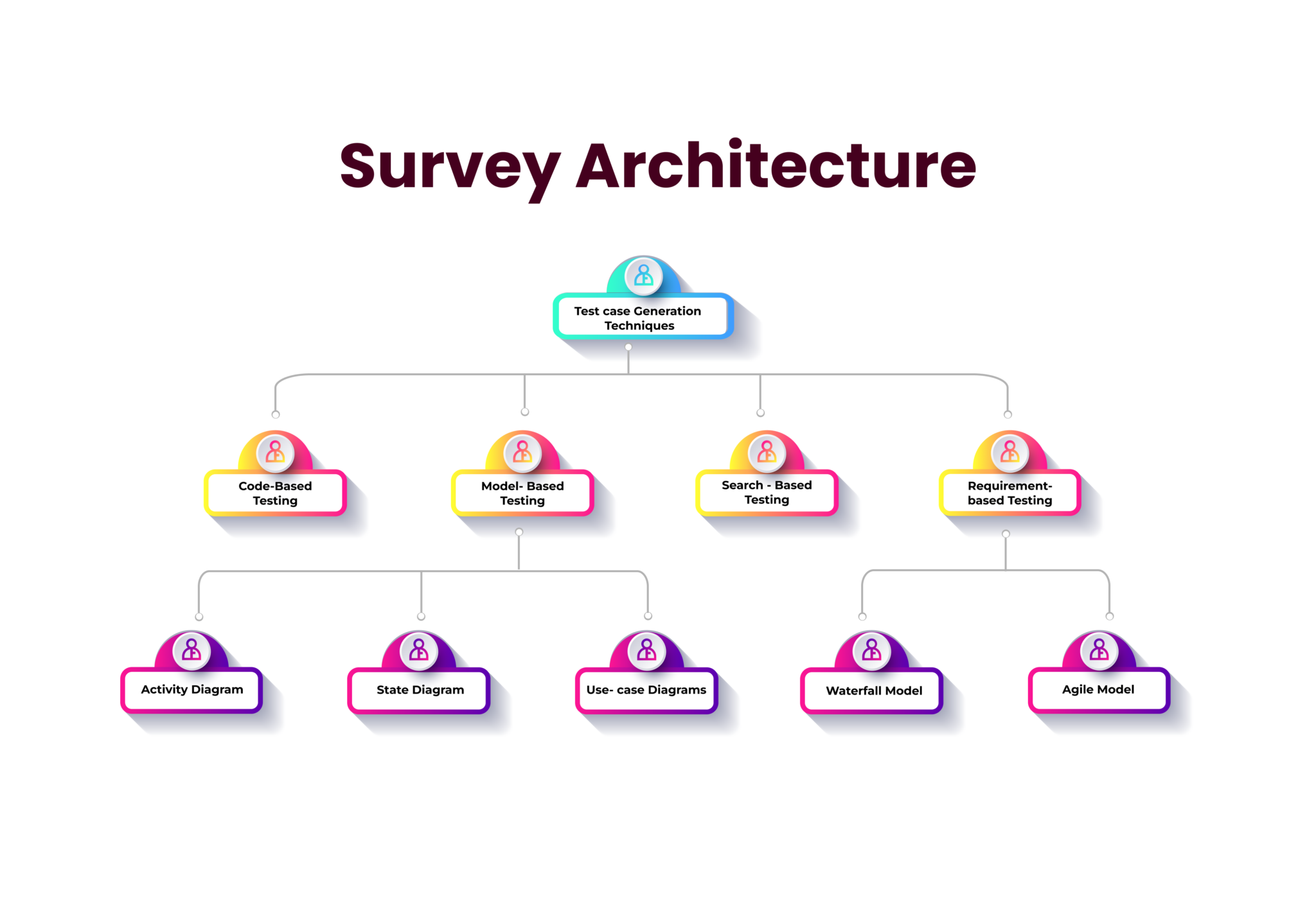
2. Test Data Generation
ChatGPT can also assist you in creating test data for your applications. The tool is able to create the necessary data to test the software’s functionality by giving the system the input parameters and their expected outcomes.
3. Exploratory Testing
ChatGPT can help with exploratory testing, which is an ad-hoc and unscripted testing strategy. ChatGPT can assist testers in exploring the software’s functionality and discovering any faults by exploiting its natural language processing skills.
4. Test Automation
ChatGPT can also aid with testing automation. It can learn from manual testing operations and develop automated test scripts that can be used to continuously test the product by exploiting its machine learning capabilities.
5. Bug Prediction
ChatGPT can also help predict possible software bugs. It can provide insights into the places that are more likely to have problems by evaluating the code and testing data, allowing testers to focus their efforts on those areas.
Using ChatGPT for low-code testing
Low-code testing entails testing apps created with low-code development platforms, which allow developers to create applications without having to write a lot of code. These platforms frequently include drag-and-drop interfaces, pre-built components, and other features that facilitate the rapid development of applications.
Let’s look at the ways ChatGPT can assist you with low-code testing:
1. Test Case Generation
ChatGPT can automatically develop test cases based on user needs, specs, and other inputs. It can examine the low-code application and generate test cases for all potential scenarios.
2. Test Data Generation
ChatGPT can also assist in generating test data for low-code applications. It may generate test data based on a variety of scenarios, including positive and negative test cases, edge cases, and others.
3. Test Execution
ChatGPT can run test cases for low-code apps and generate thorough results reports. It can detect problems, offer solutions, and guarantee that the programme satisfies the needs of the user.
4. Code Analysis
Low-code applications may have their code examined by ChatGPT to identify problems like as performance and security flaws. It can offer you recommendations for solving these problems, ultimately helping to ensure that the app is secure and functions properly.
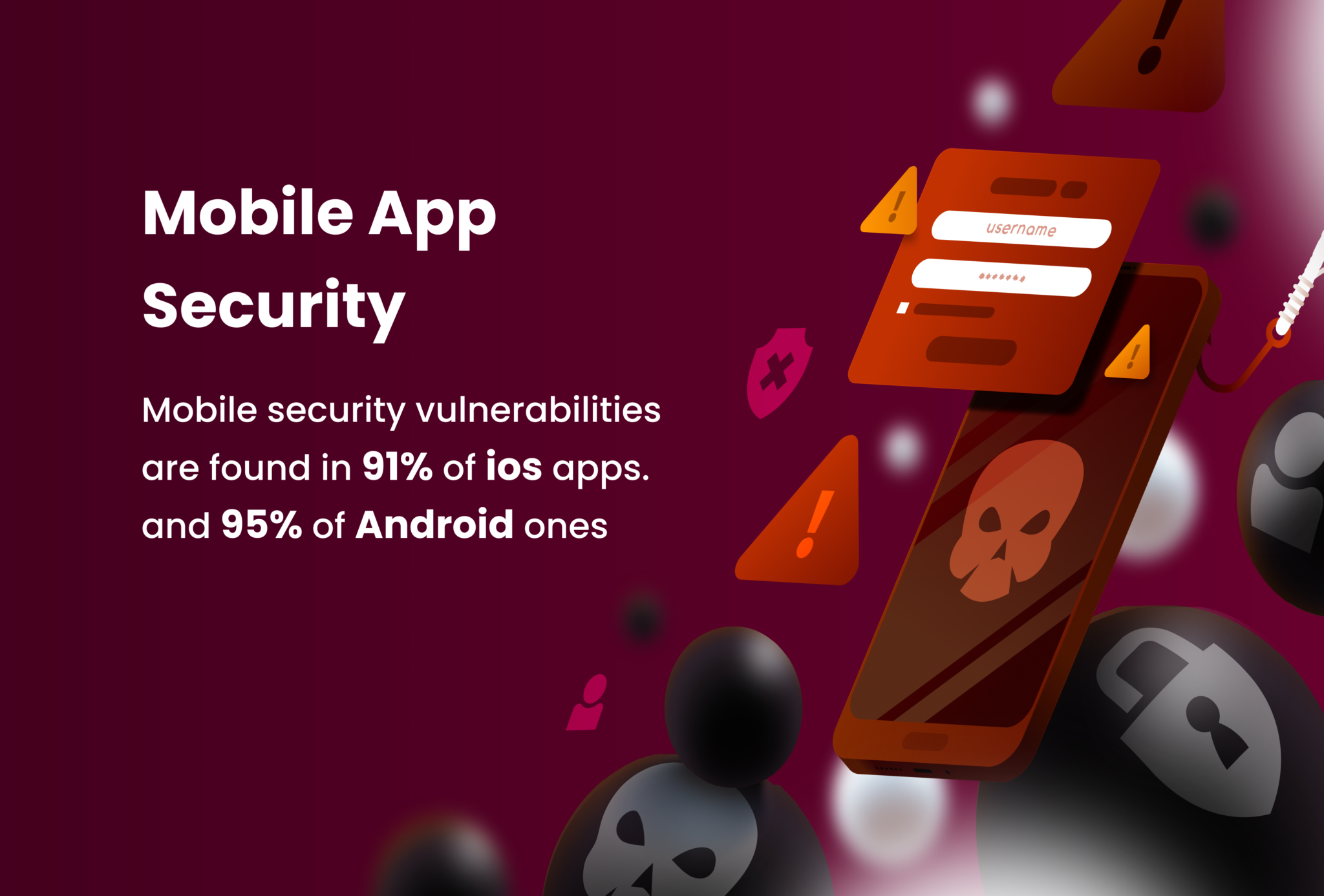
ChatGPT is an effective low-code testing tool that developers can use to help make sure that their applications are robust and fully ready for users.
What are the cons of ChatGPT for automated testing?
ChatGPT has become a hot topic, especially when it comes to low-code platforms for automated testing. There are many advantages to ChatGPT when it comes to automated testing. However, that doesn’t mean it’s flawless. Let’s discuss ChatGPT’s limitations and potential disadvantages:
- ChatGPT does not implement the app code being tested itself. So you can’t expect it to decide if the generated code is achievable.
- ChatGPT is incapable of identifying the despised methods, nor does it have an effective way to correct the issue.
- ChatGPT’s generated code mostly employs common page structures. Due to that, users are supposed to identify the problem themselves and request an updated code version.
Despite such drawbacks, ChatGPT still has huge potential as a low-code option for automated testing. However, QA testers must use this AI model only after thoroughly knowing the programming language and the app under test.
Can ChatGPT assist in test automation?
Yes, ChatGPT is able to assist with test automation. Since it’s a language model, it can offer suggestions on test automation strategies, tools, and best practices
.
Let’s look at how ChatGPT can help you with test automation in detail:
1. Test Automation Planning
ChatGPT can help with test automation planning by recommending which tests work best for automation, recommending potential automation frameworks, and recommending how to integrate automation into the development process.
2. Test Automation Tools
ChatGPT can assist you in choosing test automation tools that work best for your projects. It offers a comparison between various tools and provides insight into their functionality.
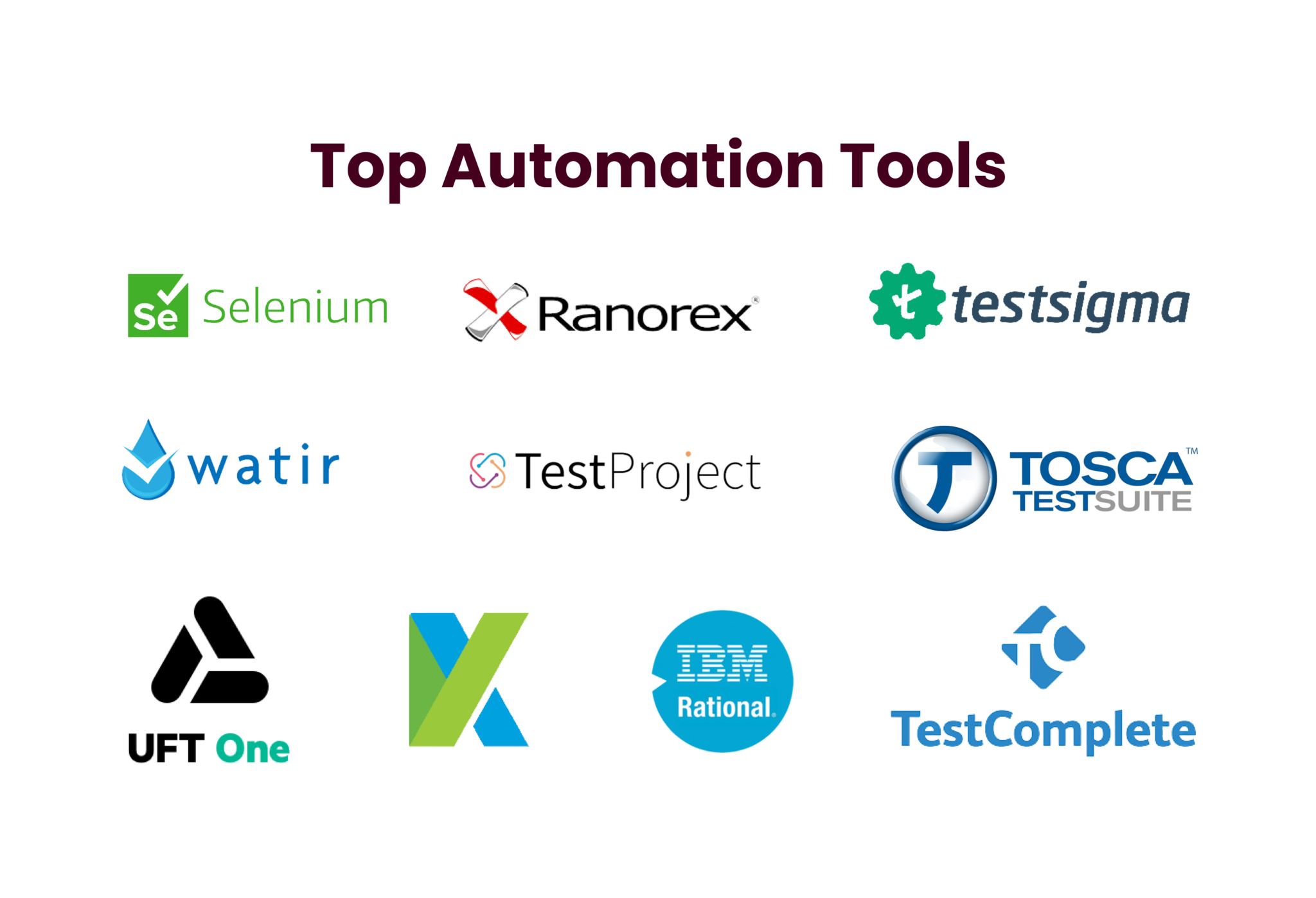
3. Test Automation Frameworks
ChatGPT has the ability to recommend popular test automation frameworks and guide you to the most suitable framework based on your project’s requirements.
4. Test Automation Best Practises
Best practices for test automation, such as developing maintainable test scripts, maintaining test data, and handling erratic tests, may be provided via ChatGPT.
5. Troubleshooting
ChatGPT can help you find and troubleshoot problems related to test automation scripts, like debugging failing tests or finding bottlenecks in test execution.
Is ChatGPT better than testing teams?
Is ChatGPT more effective than testing teams? Could it possibly replace testing teams? Well, there’s no absolute yes or no answer to this just yet. Of course, ChatGPT is one of the most powerful tools for producing natural language. However, keep in mind that it’s still a relatively new product. So the ChatGPT algorithm has yet to mature fully. At this point, it’s not completely perfect for performing automation testing accurately. You can’t take the written test cases from ChatGPT as fully accurate either.
In short, you can use ChatGPT to help with test automation efforts. But it’s not advanced enough to replace AI-based test automation just yet.
Wrapping Up
ChatGPT can be a useful tool for test automation. Using ChatGPT, testers can automate tests and improve the testing of conversational interfaces such as chatbots, virtual assistants, and even voice assistants. ChatGPT offers testers the chance to improve the efficiency and effectiveness of the testing process. In turn, testers can develop a higher-quality software product.
However, ChatGPT is still relatively new and continues to be updated to improve features or fix limitations. Plus, it’s designed to keep you learning. So over time, with more people using it and finding bugs in this tool, its accuracy will improve.

